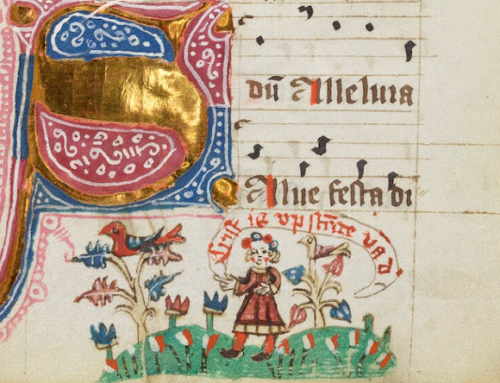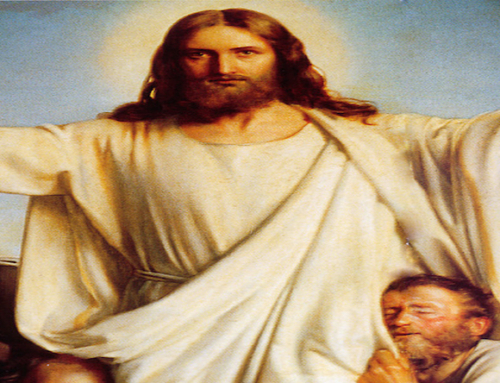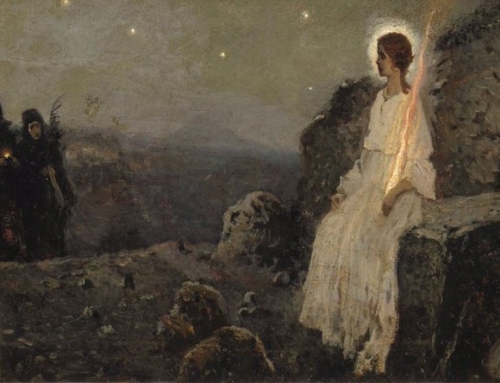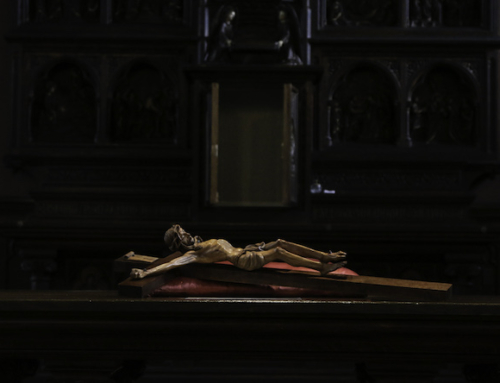I hate those meals right before some event that you’re dreading. You know you need to eat, because if you don’t you’ll feel too weak to do anything. But at the same time, you’re too nervous to have any sort of appetite. It’s hard to engage in the mealtime conversation or laugh at the dinner table jokes.
But on the first Holy Thursday many years ago, at the Last Supper, it seems that Jesus was quite happy to be eating just such a meal – his last meal before his torture and death. I have eagerly desired to eat this Passover with you before I suffer, he tells his disciples (Lk 22:15). And after having the meal, he even sings a song with them all: Then, after singing a hymn, they went out to the Mount of Olives (Mk 14:26).
What was this hymn? Perhaps we can’t know for sure, but my Study Bible mentions that it was common to conclude the Jewish Passover meal with the thanksgiving songs which we know as Psalms 114-118. The final words of Psalm 118, therefore, are perhaps the last words which Jesus spoke before entering into his Passion. They read: Give thanks to the Lord, for he is good; his mercy endures forever.
This is incredible to consider. Knowing the terrible events that were about to unfold – that the next day, in the midst of physical and psychological agony, he would take upon himself the terrible punishment for the world’s sins, crying “My God, my God, why have you forsaken me?” – the last thing Jesus said was, “Give thanks to the Lord, for he is good; his mercy endures forever.”
How do you do that? How do you look into a pit of suffering and horror and then say, “Give thanks to the Lord, for he is good?”
But then, this has been the testimony of people who have known the Lord throughout the ages. Israel’s history, recounted in the Old Testament, is filled with defeats and tragedies and exiles. And yet, through it all, the message of the prophets remains the same: The Lord is kind and merciful, slow to anger, and abounding in steadfast love.
And this testimony persists. I recently read a remarkable quote from Sr. Wendy Beckett, who said that, “Regarding the future, [the Lord] tells me nothing specific, but only this – that it is pure love.”
How can the Lord expect us to believe all this? How can he continually tell us that he is good, that he is kind and merciful, that the future holds nothing but love, when there seems to be so much evidence to the contrary? Considering all the suffering in the world, these claims press against the limits of belief.
And yet, somehow everything changes when this same Lord comes to us and personally dies a terrible death on a cross. All of the apparent evidence against the Lord’s goodness remains, lying there in the open daylight. But somehow it has lost its weight.
Because when someone dies for you on a cross, you realize that they meant what they said. You realize that they weren’t speaking in self-interest. You realize that they are worthy of your trust.
And when we realize that, we suddenly become capable of doing that crazy thing which Jesus did on that first Holy Thursday. We are suddenly able to sit with him at the Last Supper, looking at all the suffering and evil the world has to offer, and saying with the whole multitude of the saints, Give thanks to the Lord, for he is good; his mercy endures forever.
✠
Image: Fr. Lawrence Lew, O.P., Eclipse in Edinburgh







